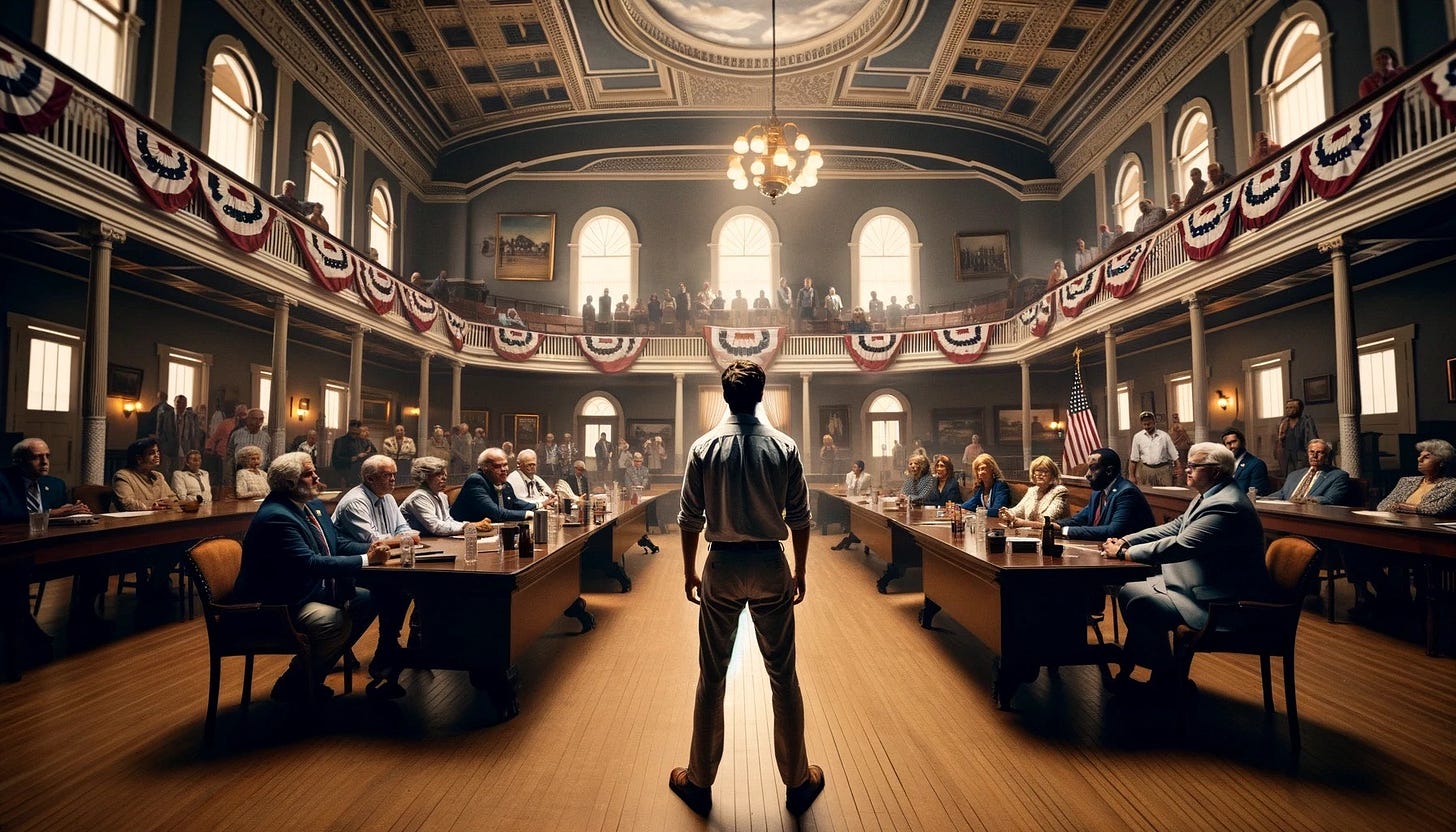In 1937, the Soviet Union was entangled in a paradox. Stalin's constitution, adopted the year prior, teased democracy for the Soviet masses - open elections, dissenting voices, multi-candidate elections, real choice -- it would make the Soviet Union the most democratic country on Earth. At least on paper. But constitutions and platforms giveth while the commissars taketh away.
As the year dragged on, a desire greater than constitutional commitment emerged - the desire to wield and maintain power. Thus, over 1937-38, the famous show trials against political opponents became the prime events of Stalin's Great Terror. A steady stream of dissenters and "enemies", many of whom had been duped into believing in the promise of a multi-candidate system open to dissent, were shipped to gulags or executed.
This lust for power and control was not an isolated incident unique to the Soviet Union of 1937. It is a recurring theme in human history, driven by personal ambitions and the darker facets of human nature. The Catoosa County Republican Party has provided fresh evidence that human nature remains fixed.
Mimicking earlier examples from Chattooga County and Pickens, the Catoosa GOP has introduced a rule that requires prospective candidates who wish to appear on the Republican primary ballot to secure a majority vote from the 15-person Catoosa county republican party county committee within 12 months prior to the qualifying period. See below.
In order to qualify for office as a Republican, a potential candidate must be approved by the Catoosa County Republican Party County Committee by a majority vote within twelve (12) months prior to the date he or she attempts to qualify.
At first glance, this might seem like a reasonable, even benign measure. They claim it is to ensure candidates are genuine Republicans. What criteria will the committee use? Why wasn’t that criteria or standard made public and disclosed? This new hurdle to ballot access raises deeper issues about the nature of democratic processes and party control.
The Supreme Court has recognized the rights of political parties to select their nominees as part of the First Amendment's freedom of association. Simultaneously, it has acknowledged the state's interest in maintaining clear, consistent election procedures, including that they may mandate that nominees be chosen through primary elections—something Georgia has done.
O.C.G.A. § 21-2-153 states that, “Unless otherwise provided by law, all candidates for party nomination in a state or county primary shall qualify as such candidates in accordance with the procedural rules of their party; provided, however, that no person shall be prohibited from qualifying for such office if he or she:
(1) Meets the requirements of such procedural rules;
(2) Is eligible to hold the office which he or she seeks;
(3) Is not prohibited from being nominated or elected by provisions of Code Section 21-2-7 or 21-2-8; and
(4) If party rules so require, affirms his or her allegiance to his or her party by signing the following oath: “I do hereby swear or affirm my allegiance to the (name of party) Party.”
While parties have the right to select nominees, states can mandate primaries for that purpose. Georgia statute mandates primary elections for party nominations, requiring only basic eligibility criteria to be met for candidates. The party believes its extra step is a valid "procedural rule." That will likely be challenged in court.
Whatever their criteria, Americans have established norms - participation beats prohibition in matters of public office. We select standard eligibility requirements, then let the people decide who will represent them.
Let's be clear about what is happening.
Over 10,000 people voted Republican in the 2022 Catoosa primary. Yet the Catoosa GOP county convention, which selected the 15-person county committee, had under 200 people show up. Now, this group, which is a tiny fraction of Republican primary voters in Catoosa County, has granted itself arbitrary powers to exclude primary candidates in a secret vote. To deny voters their First Amendment rights of association.
This rejects a core American principle - self-government by the people. The reasoning? "Voters are disappointed by candidates labeled Republican." However, the Georgia Republican Assembly– the quasi-third party heavily affiliated with the Catoosa GOP– revealed that it was because of “low-information voters" when discussing a similar measure in Chattooga County.
But let’s not rush to judgment.
Perhaps we are mistaken. This isn't about depriving Republican voters of their sacred and natural right to scrutinize candidates and make independent choices. Heaven forbid! No, the leaders of the Catoosa GOP, these paragons of virtue, these sage guardians of the ballot, possess wisdom so towering, insights so profound that mere mortal voters pale in comparison. With the noblest of intentions and the purest of hearts, they've graciously assumed the Herculean task of sifting through the riff-raff of candidates. After all, why trouble the simpletons who stumble into a voting booth in the primaries with the arduous task of choosing?
Fear not the tyranny of choice; our benevolent overlords of Republican purity have graciously intervened. And it seems likely that these electoral white knights will humbly offer even further thoughtful service and might streamline the process to a single, party-approved candidate for each office or at least only a couple. Why risk the messy business of democracy when you can have the streamlined efficiency masterfully displayed by the 1937 Soviets?
So, as you step into the voting booth, remember the luxury of simplicity you've been afforded—no need to exercise free will or wrestle with the weighty implications of your civic duty. Just tick the box next to a pre-approved candidate. Easy! And then, dear comrade, kick back. The express train to utopia awaits; no heavy thinking is required!
Remember the words of Republican President Abraham Lincoln about the government of the people, by the people, for the people. It was a nice idea. But in Catoosa, as in Soviet Russia, the commissars seem to disagree.





